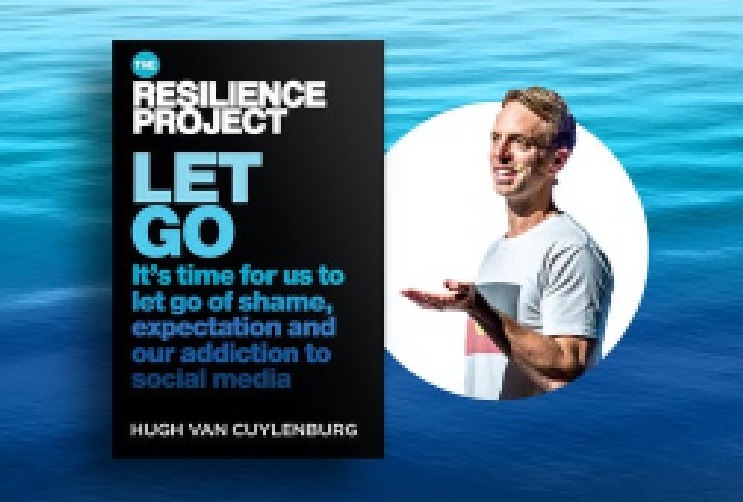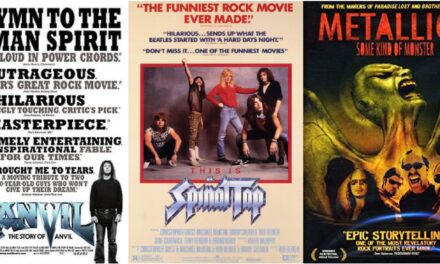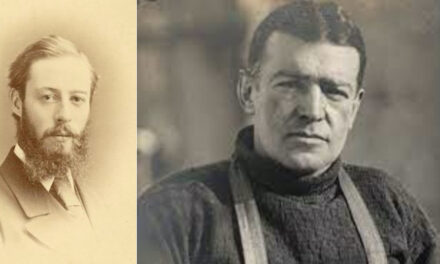In Hugh Van Cuylenburg’s first book The Resilience Project, Hugh took the learnings from working in a remote school in Northern India and turned them into a simple but effective process he calls GEM (Gratitude, Empathy and Mindfulness). The following is a review from a couple of years ago.
https://isowilson.com/the-resilience-project-discovering-kindness-through-simplicity/
The Resilience Project has now become a thriving business with Hugh and his team presenting to over 1500 schools and hundreds of elite sporting teams and corporates.
That was until Covid 19 hit our shores in 2020 of course. Hugh’s latest book, Let Go, was written throughout Melbourne’s horrendous two year lockdown and examines a number of subjects:
- Shame
- Expectation
- Control
- Perfection
- Fear of failure
- Social media
- Ego
I haven’t met Hugh or listened to his podcast The Imperfects, but he strikes me as someone I’ve met hundreds of times over my life. He loves sport, competed at a high level, and has all the hallmarks of a perfectionist.
What I enjoyed most in this book that perhaps wasn’t in his first, is that he has definitely shown vulnerability and shared some intimate ‘lived’ experiences so as to illustrate his points.
It can’t have been easy but the stories are compelling, authentic and very funny at times. Being self-deprecating is a wonderful quality and Hugh is at times a complete ‘doufus’, which I totally relate to.
From an Australian male perspective, I would consider myself emotionally constipated and most men I know are the same. My life has been spent in the army, in football clubs and in corporate life, perhaps the most superficial existence of all.
Letting go of shame for instance is a big one for me. As a manager at work and as a coach in footy I’ve always espoused the mantra of “don’t be afraid to make mistakes. It’s how you respond to them that matters most.’
Despite having a doctorate in making mistakes and a lifetime of ‘stuff ups’ that I would openly share with my teams, there are still some things that are so shameful that it would require a crowbar to dig them out.
This chapter in Hugh’s book triggered my earliest memory of regret when I was twelve years old. We were finishing primary school and there was a ceremony in the school quadrangle in the evening to name the school Dux for 1975 and other awards.
I was considered a chance and told my parents that they couldn’t come because I was too nervous. The real reason was because I was embarrassed that my parents were too old. Mum was 52 and Dad, 60.
As the announcement was made that I was Dux, I walked to the front to receive my $50 prize and out of the corner of my eye I saw my parents standing in a dark corner away from the other parents doing their best to be invisible. I was ashamed and forty six years down the track, it stays with me.
Although I managed to ‘clear the decks’ emotionally with most things regarding my parents before they passed away, there was so much more I wanted to say. Shame can be very debilitating and I would give anything to be able to ask questions of and listen to my Dad again, a man whose life was so traumatised by war he found it too hard to open up.
Hugh offers some excellent advice regarding how to move on from shame and some professional learnings gained from his psychologist Anita and from renowned sports psychologist, Ben Crowe.
Hugh writes about ‘hyperfrontality’, otherwise known as ‘flow’ or ‘in the zone’. It’s when our sense of self-consciousness disappears and the ‘thinking part’ of our brain takes a back seat.
We’ve all experienced it at times whether its physically through sport or holistically through great art for example. Hugh experienced it with a group of down syndrome boys and girls called Club 21. I feel the same working in the disability sector these days. When you’re in that zone, to quote Neil Young, time fades away.
As a person with bi-polar disorder, the first 31 years of my life consisted of confusion, dangerous lows and extreme highs.
My love of football literally saved my life. Not knowing I had an illness resulted in anger when the ‘fog’ came in and I would run myself into the ground in an attempt to push the depression from my head.
Inadvertently what I was doing was reaching for that ‘hyperfrontality’ which would assist in me getting some sleep and help in bringing my emotional state back to somewhere near base level again.
A combination of brutal training and isolation from friends and loved ones would keep the ‘downs’ to a few days rather than a week or more.
I would compare the physical punishment to a long time heroin addict who doesn’t inject to get high, but simply does it to return to something manageable as a human again.
Let Go has that terrific combination of lived experience and advice that will keep readers engaged. There is a nice chapter on social media also and I’d like to share a quote from Hugh’s Mum here.
The context is around parents who take their kids to playgrounds but prefer to spend their time looking at their phones. Benji is Hugh’s son referenced in the quote:
“When I was your age (Hugh) and you were Benji’s age, I saw everything you saw. I heard everything you heard and I smelt everything you smelt. I was there with you every single step. I experienced the world as you did.”
The numbers around social media are frightening. According to The Age in 2019, Australians spent on average more than forty six hours a week peering at their screens (and this was before Covid and lockdowns).
Not only that, we check our smart phones around eighty five times a day. If we can decrease screen use and turn it into positive behaviours like open communication or activities that search for the ‘flow’, it can only improve our overall health.
There is a lot more contained in the book that I feel would be very helpful for coaches, parents, athletes and those driving themselves too hard in their careers.
There is so much pressure placed on expectation these days, but without letting go of things like shame, social media and ego, they become either unattainable or you’ll get there in a state of psychological disrepair.
More on The Resilience Project can be found via this link.
https://theresilienceproject.com.au
Thanks for reading. I just wanted to mention that this blog is not for profit however if you would like to sponsor me for a small amount to cover maintenance I can have your business linked from each page of my blog. Pls email me at ian.wilson6344@gmail.com
If you’re not interested in a sponsorship and you enjoy reading my diatribe, could I please ask if you could make a tax deductible donation to Fight MND at this link. Many Thanks.
https://fightmnd.org.au




